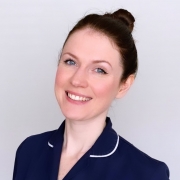
By day, I work as a GP nurse, but I’m also a blogger, YouTuber and TikToker. I started using social media a lot towards the end of my first year of my nursing degree.
I wanted to use YouTube as a platform to help other student nurses out there and hopefully encourage more people into nursing by showing the positive sides to nursing.
Fortunately, it has worked well for me so far, and here are my top tips for using social media as a healthcare professional.
Some things I always ask myself before I post anything on social media are:
- Why am I posting this? What is my aim?
- Is this going to offend anyone? Can it be seen in a negative light?
- Am I using inclusive language for all? This is something I recently discovered actually! I had done a vlog on cervical screening and used some language that was not helpful to someone who was a sexual assault survivor. I had no idea what I had done, so I asked this person if we could have a conversation about how I can improve my language, and share awareness on this. Which is one of my biggest tips here: learn from your mistakes and improve – don’t get defensive.
- If I’m going to make a statement, can I back it up with real evidence?
The Nursing & Midwifery Council also offer helpful guidance on social media in relation to The Code – the professional standards of practice and behaviours for nurses, midwives and nursing associates.
Tips for social media use in general:
- Stay professional. Don’t voice opinions without evidence, don’t swear, don’t share vices like smoking and drinking. Think about posting as the ‘nurse you’.
- Don’t put others down on social media – let’s keep things positive.
- A healthy debate is ok, but to get angry at others is not. Sometimes social media can get you riled up a little when people are posting things you don’t agree with. Drop your shoulders, take a deep breath, and move on. Don’t get into an argument because it’s really not worth it.
- Don’t post something for the ‘follows’ or the ‘likes’ – post what you’re passionate about.
- Don’t be afraid to follow senior healthcare professional and sector leaders. Sometimes I tag them in relevant posts I have shared where appropriate.
- Don’t be afraid to share your own achievements on social media.
- If you want to find more people to follow, take look at other people’s ‘followers and follows’ lists and go follow them.
Tips for writing blogs and articles:
- If you want to start blogging, have a look at free platforms to get you started – often you don’t need much technical knowledge. Work out which one is right for you.
- Don’t compare yourself to others – you are you and this is your story, not anyone else’s.
- Need a place to start? Start off by telling your readers your personal journey. So, one of my first blogs was about why I came into nursing. It is a great place to begin.
- You don’t need a specific writing style – just write and shine! Like I said, this is your writing and your journey.
Tips for vlogging and recording yourself:
- Just get started, pick up your mobile phone, laptop, or computer device, and start. The first step is the hardest.
- Make the most of your environment: sit in front of a window during the day, the better the lighting the better the quality of your video. Record somewhere quiet and you won’t need a microphone.
- Make the most of your phone: many may have free editing apps
- Keep videos short and straight to the point – sometimes I go off topic! I try to keep videos shorter so I don’t bore people or lose viewers.
- Speak naturally: most of the time I don’t plan my videos. I don’t have a script – I just talk and edit the bits I don’t want. I feel I show my passion this way.
- I use YouTube to vlog, but you can also share on other platforms like Twitter, Instagram, or even TikTok. Many platforms are limited as to how many minutes your video can be, however my experience is that YouTube allows for longer video footage to be uploaded.
- Don’t worry about what others will think of you – if you keep thinking this you will never start. Just record, edit, and upload.
- Ask your viewers what they would like to see from you – I often ask mine to see what sorts of things would be useful to them. This helps structure future videos too.
Hopefully, this gives you a few basics to help you get started – you’ve got this!
Any advice given and opinions expressed in this article are those of the author and do not reflect the view of Chiesi Limited (Chiesi). All content in this article is for informational and educational purposes only. Although Chiesi strives to always provide accurate information, it is not responsible for and does not verify for accuracy any of the information contained within.



 Claire Carmichael
Claire Carmichael 

